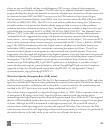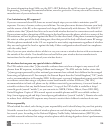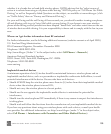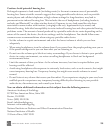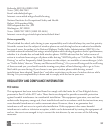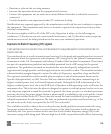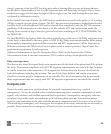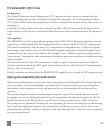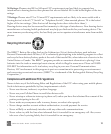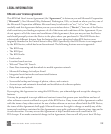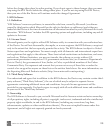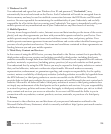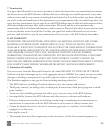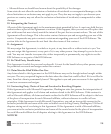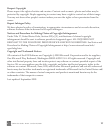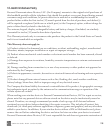
ONEm User Guide - R1.0.2 - October 20, 2010 111
M-Ratings: Phones rated M3 or M4 meet FCC requirements and are likely to generate less
interference to hearing devices than phones that are not labeled. M4 is the better/higher of the two
ratings.
T-Ratings: Phones rated T3 or T4 meet FCC requirements and are likely to be more usable with a
hearing device’s telecoil (“T Switch” or “Telephone Switch”) than unrated phones. T4 is the better/
higher of the two ratings. (Note that not all hearing devices have telecoils in them.)
Hearing devices may also be measured for immunity to this type of interference. Your hearing device
manufacturer or hearing health professional may help you find results for your hearing device. The
more immune your hearing aid is, the less likely you are to experience interference noise from mobile
phones.
Recycling Information
The RBRC™ Battery Recycling Seal on the Lithium-ion (Li-ion) battery/battery pack indicates
Personal Communications Devices, LLC is voluntarily participating in an industry program to collect
and recycle these battery/battery packs at the end of their useful life, when taken out of service in the
United States or Canada. The RBRC™ program provides a convenient alternative to placing Li-ion
batteries into the trash or municipal waste stream, which is illegal in some areas. Please call 1-800-
822-8837 for information on Li-ion battery recycling in your area. Personal Communications
Devices, LLC involvement in this program is part our commitment to preserving our environment
and conserving our natural resources. (RBRC™ is a trademark of the Rechargeable Battery Recycling
Corporation.)
Compliance with additional FCC regulations
Never violate any of the following Rules and Regulations of the FCC when using your mobile phone.
Such violations are punishable by fine, imprisonment or both.
• Never use obscene, indecent, or profane language.
• Never use your Cellular Phone to send false distress calls.
• Never wiretap or otherwise intercept a phone call, unless you have first obtained the consent of the
parties participating in the call.
• Never make any anonymous calls to annoy, harass, or molest other people.
• Never charge another account without authorization, to avoid payment for service.
• Never willfully or maliciously interfere with any other radio communications.
• Never refuse to yield the line when informed that it is needed for an emergency call. Also, never
take over a line by stating falsely that it is needed for an emergency.



